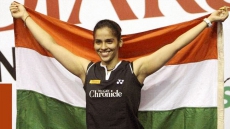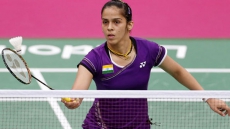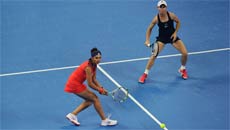The cities of Krakow (Poland), Oslo (Norway), Almaty (Kazakhstan), Lviv (Ukraine) and Beijing (China) Friday submitted their respective applications to the International Olympic Committee (IOC) for hosting the 2022 Winter Olympics.
The applications filed provide the IOC with an overview of each city’s vision and concept for the Games and form the basis for an initial technical analysis of the bid.
The files will now be studied by an IOC-appointed working group, which will then submit a report to the IOC Executive Board (EB). The EB will decide which of the five cities will be accepted as Candidate Cities and proceed to Phase 2 at a meeting in July. Following its decision, the working group’s report will be published on the IOC website.
As the Olympic Games are a unique project, whose size, scope and complexity mean that they are typically the biggest event that cities looking to host the Games will ever undertake, the IOC assists them in a number of ways, including financially and through an extensive transfer of knowledge programme.
The IOC puts at the disposal of the bid cities a significant amount of information and expertise through its Olympic Games Knowledge Management (OGKM) platform, which takes the form of documentation, experts, workshops and personal observation of previous Games.
All five cities for the 2022 Games participated in the Sochi 2014 observer programme last month. The programme allows cities to learn the best practices of previous hosts and to adapt those lessons to their own unique context.
Once elected, the IOC continues to support the local organising committees through OGKM, as well as with the regular visits of its coordination commissions and experts, who help to guide the organisers, as they develop their Games project.
All IOC-related costs (for accommodation, transport, etc.) are covered entirely by the IOC, as is the case during the Games themselves.
Applicant cities who move on to the Candidate City Phase of the bid process have until January 2015 to submit their candidature -- in-depth blueprints of the cities’ Olympic projects. The IOC president will then appoint an Evaluation Commission made up of IOC members (who are volunteers) and experts to visit each Candidate City and prepare a technical risk assessment to assist IOC members in electing the host city in July 2015.





